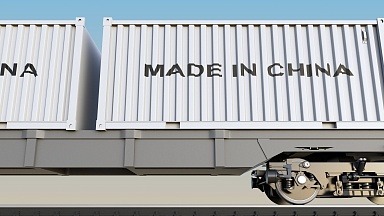The decision was a result of the shift from air to rail services. The outbreak of COVID-19 notably reduced air freight services. Subsequently, prices concerning air cargo transport reached a new high. Compared to rail freight services, air freight services used to be four times more expensive for a five-ton shipment. However, these last few months, the price difference has increased, now being ten times more.
A logical transition
With the prices reaching unprecedented levels, Nippon Express decided that it would be optimal to turn towards the rail sector. Since 2015, with Eurasia Train Direct, the company has been connecting various Chinese cities with European ones, using the China Railway Express. The collaboration with a train operator from Xi’an, allows the logistics company to operate around 3,000 round trips to Europe per year. Estimations say that with the company turning its attention to rail services, these round trips to Europe will reach the number of 5,000 per year.
It is critical to mention that air transportation from China to Europe takes five days until completed. On the other side, rail routes, such as that between Xi’an-Duisburg, can take up to twenty-five days. Rail options can be more time-consuming. Yet, even under these conditions, companies take overall costs under consideration primarily when it comes to decision making. Consequently, they prefer a stable and cheaper solution that the rail freight services offer.
Future opportunities
The measures concerning the limitation of COVID-19 spreading certainly shifted transportation conditions around the world. Nevertheless, this situation constitutes an excellent opportunity for the rail freight sector to adapt quickly and profit.
For instance, Nippon Express, which’s rail accounted for only ten per cent of its total cargo, is now looking for ways to expand its routes and destinations. Moreover, big companies, such as the Danish A.P Moller-Maersk, are stabilising their intercontinental rail routes. This tendency seems to be proof that the rail freight sector can benefit greatly if the situation is interpreted and managed correctly.



